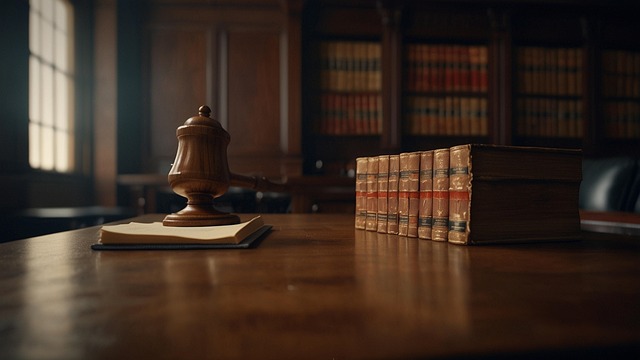C-Level investigations demand a sensitive approach to probe executive misconduct with legal repercussions. Understanding jurisdiction-specific Statute of Limitations for Libel Cases is vital for timely action to avoid case dismissal due to staleness. Legal complexities require skilled teams balancing criminal defense and investigation integrity, crucial for favorable outcomes and reputation preservation. Effective post-investigation management involves adhering to legal timelines, robust trial strategies, evidence protocols, and transparent stakeholder communication.
“In the realm of corporate governance, C-level investigations are crucial to maintaining integrity. This comprehensive guide delves into the intricacies of these high-stakes inquiries, focusing on key considerations and legal complexities. From understanding the Statute of Limitations for libel cases – a vital aspect with significant time frames – to effective post-investigation management strategies, this article equips professionals navigating such complex landscapes. By exploring these topics, organizations can ensure robust and responsible investigation processes.”
- Understanding C-Level Investigations: Key Considerations
- Statute of Limitations: Libel Cases and Time Frames
- Navigating Legal Complexities in High-Level Inquiries
- Strategies for Effective Post-Investigation Management
Understanding C-Level Investigations: Key Considerations

C-Level investigations refer to high-level inquiries into potential misconduct or wrongdoings by executives and senior management. These cases are complex due to their sensitive nature, significant legal implications, and the need for meticulous handling. When a C-level individual is involved, organizations must navigate intricate legal frameworks, including the Statute of Limitations for Libel Cases, which varies based on jurisdiction and the type of allegation. Understanding these limitations is crucial as it dictates the timing of investigations and potential legal defenses available to both individuals and companies.
In the realm of white-collar defense, effective C-level investigations require a comprehensive approach. This includes all stages of the investigative and enforcement process, from initial fact-finding to evidence collection and legal strategy. For his clients, ensuring robust protections throughout this process is paramount. It involves careful consideration of privacy rights, potential reputational damage, and the strategic use of legal counsel to safeguard both the individual and the organization.
Statute of Limitations: Libel Cases and Time Frames

In libel cases, understanding the Statute of Limitations is paramount for both plaintiffs and defendants alike. This legal concept dictates the time frame within which legal actions can be taken after the initial publication or dissemination of defamatory material. The Statute of Limitations for libel varies across jurisdictions, but typically ranges from one to two years from the date of the alleged defamation. Failure to file a lawsuit or take formal action within this period may result in the loss of the right to pursue damages, as the court may deem the case stale or unenforcible.
Knowing these time frames is crucial for navigating all stages of the investigative and enforcement process. While some cases may be resolved through negotiations or alternative dispute resolution methods like mediation before reaching a jury trial, the Statute of Limitations remains a critical factor in determining the respective business interests at stake and the potential outcomes for both parties involved.
Navigating Legal Complexities in High-Level Inquiries

When conducting C-Level investigations, navigating legal complexities is paramount. High-level inquiries often involve intricate matters such as corporate governance, financial misdeeds, and reputational damage—areas where legal landscapes are frequently shifting. Legal teams must be adept at interpreting not only current laws but also past legislation that could come into play, particularly when dealing with issues like the Statute of Limitations for Libel Cases. Understanding these temporal constraints is crucial in crafting a winning challenging defense verdict, ensuring that actions are taken within the legally prescribed timeframe.
Moreover, the general criminal defense strategies employed at this level must be robust enough to avoid indictment while upholding the integrity of the investigation. Skilled attorneys play a vital role in guiding executives through these legal labyrinths, helping them stay compliant and protect their rights throughout the process. This meticulous approach is essential for achieving favorable outcomes and maintaining organizational reputation.
Strategies for Effective Post-Investigation Management

Effective post-investigation management involves several key strategies to ensure that the process yields tangible results and prevents future issues. One crucial aspect is understanding and adhering to legal timelines, such as the Statute of Limitations for Libel Cases, to avoid any potential time-barred claims. This meticulous attention to detail ensures that all legal avenues are explored and can lead to a complete dismissal of all charges if the investigation uncovers insufficient evidence.
Moreover, successful post-investigation management includes preparing for the eventuality of jury trials, which requires a robust defense strategy. Organizations should have in place protocols for documenting and preserving evidence, as well as procedures for communicating with stakeholders transparently. By implementing these measures, companies can enhance their chances of achieving winning challenging defense verdicts, demonstrating due diligence and mitigating potential risks.
In navigating C-level investigations, understanding legal complexities and key considerations is paramount. The Statute of Limitations for libel cases plays a crucial role, dictating time frames that can significantly impact outcomes. By employing effective post-investigation management strategies, organizations can ensure swift resolution, maintain integrity, and foster a culture of transparency and accountability. These steps are essential in mitigating risks and upholding the highest standards of corporate governance.






